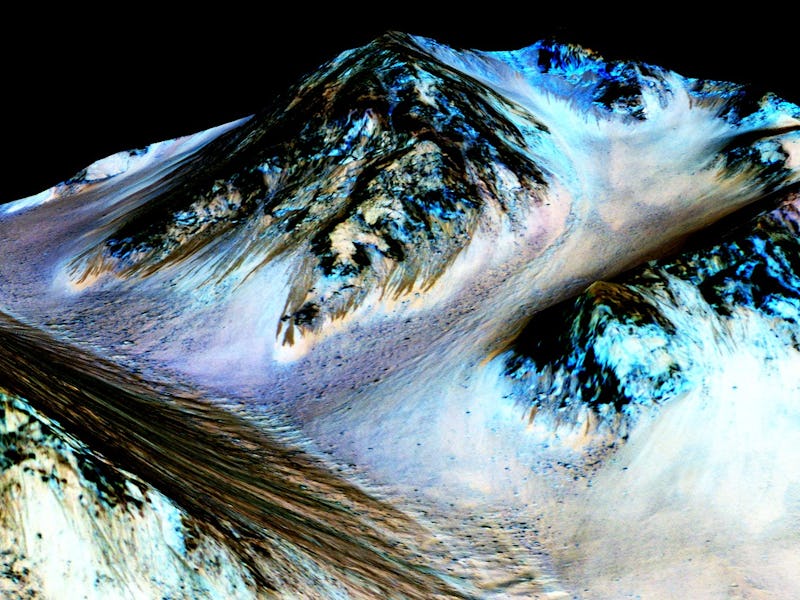The answer to where the water on Mars went may lie in its atmosphere
It’s the biggest mystery of our Solar System.

For decades, scientists have tried solve the mystery of what happened to all the water which once flowed on Mars.
Mounting evidence suggests Mars was once a wet, warm, and possibly habitable planet. But over time, Mars lost its atmosphere and, as a result, its water.
With the help of NASA’s Mars Atmosphere and Volatile Evolution (MAVEN) spacecraft, scientists were able to gain a richer understanding of the Martian atmosphere which may have solved a part of the planetary mystery.
INVERSE IS COUNTING DOWN THE 20 MOST UNIVERSE-ALTERING MOMENTS OF 2020. THIS IS NUMBER 12. See the full list here.
By observing Mars a little over 92 miles, or 150 kilometers, above the planet, a team of researchers from the University of Arizona were able to trace how Mars’ water may have disappeared from its surface.
The Red Planet experiences regular regional dust storms, but in 2018 the planet was overtaken by a global dust storm.
This animation shows the global dust storm which engulfed Mars in 2018.
According to the new data, dust storms rising from the Martian surface appear to have been slowly sucking away the planet's water over the course of millions of years, sweeping water molecules up on a wild journey into the atmosphere.
This happens on Earth, too — evaporated water molecules travel upwards until they condense from a gas back into a liquid, becoming rain-filled clouds. The region of our atmosphere where this process happens is known as the hygropause.
On Mars, this process is not happening as efficiently as it is on Earth, resulting in the water moving into Mars' upper atmosphere and reacting with atmospheric molecules where it is broken down into hydrogen and oxygen. The hydrogen may then escape the Martian atmosphere entirely and is lost to outer space forever, the study suggests.
Scientists continue to probe Mars’ atmosphere in hopes of finding out whether the planet may have hosted some form of life during its early history, thereby resolving our existential quest to find life outside of Earth.
INVERSE IS COUNTING DOWN THE 20 MOST UNIVERSE-ALTERING MOMENTS OF 2020. THIS IS NUMBER 12. READ THE ORIGINAL STORY HERE.
This article was originally published on